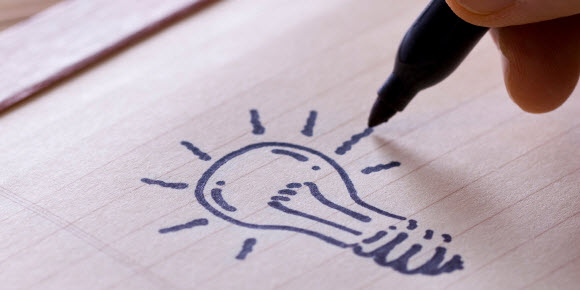Have you ever had a great idea for a new project or initiative only to have it rejected once you’ve shared it with your boss? Yes? Well, you better get used to it. New research suggests that humans possess an inherent bias against creativity. Don’t stress though, as luckily there are some steps we can take to do something about it.
“For an work to be truly creative, it has to depart from the status quo at some point. That departure makes many people uncomfortable,” writes David Burkus in a post from Behance’s blog, 99u. Burkus brings up an interesting point. Most creative ideas do tend to make people uncomfortable, partially because they venture out into the unknown. This is no more obvious than in the world of marketing. Marketers are constantly trying to walk a fine line between pushing the envelope to try something new and different, and staying within “comfort zone” of people to ensure project approval.
Research proves that when certainty is challenged, a bias against creativity, or the unknown develops. This bias was first discovered in two studies conducted by researchers at Cornell, Penn and the University of North Carolina. The team, led by Penn’s Jennifer Mueller, studied human perceptions about creative ideas when faced with uncertainty. The team divided participants into two groups, creating a small level of uncertainty in one by telling them that they would be eligible for additional payment based on a random lottery.
The two groups were then given a series of tests. One of the tests presented pairs of words on a computer to the participants and asked them to select their preferred pairing. The pairings shown always came from two groups: creative versus practical (novel, original, functional, useful) or good versus bad (sunshine, peace, ugly, vomit etc..). In each round, participants then choose their preference between pairs like “novel, vomit” or “useful, peace”. The test, which is known as an Implicit Associations Test” uses the speed of participant’s reaction time to measure the strength of their mental associations.
When analyzing the results of their tests, researchers found that the control group (the group given no chance at extra compensation) “held both implicit and explicit associations between creativity and practicality.” Here’s the interesting bit, the uncertain group exhibited different behavior. “This group held an explicitly positive association between the two, but implicitly their minds separated creative from practical. In other words, they had an implicit bias against creativity relative to usefulness.”
“We know now that regardless of how open-minded people are, or claim to be, they experience a subtle bias against creative ideas when faced with uncertain situations,” writes Burkus. This study has powerful implications for businesses. Internally, it means individuals who wish to present a new idea or try something different will have to adopt new strategies to get buy in. Externally, this research has powerful ramifications for how businesses try to bring new products to market.
Luckily for everyone there are some things that we can do to help overcome our natural desire to reject new ideas. The most important finding to remember is that our bias against creativity is triggered by uncertainty. So, when crafting your pitch for that new marketing campaign here are a couple of things you can keep in mind. “Reaffirming what the client or your manager knows is true about their project should prime them to be more accepting of your novel ideas,” suggests Burkus. Additionally, connecting the idea to more familiar ideas, such as previous successful projects or similar works, will also increase the odds that your idea will be seen as practical and desirable. Lastly, try leading your audience toward your idea with a series of statements they agree with and then pitching your idea as if it’s theirs.
These suggestions should help counter our inherent bias against creativity and help get your next great idea approved!

